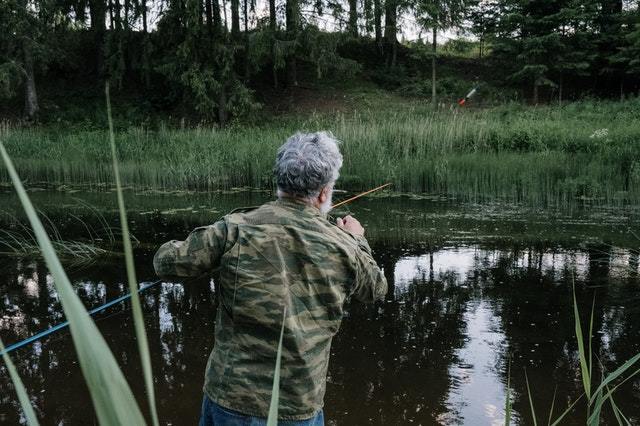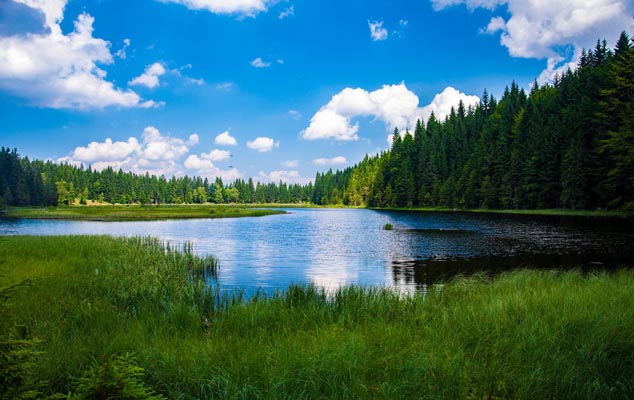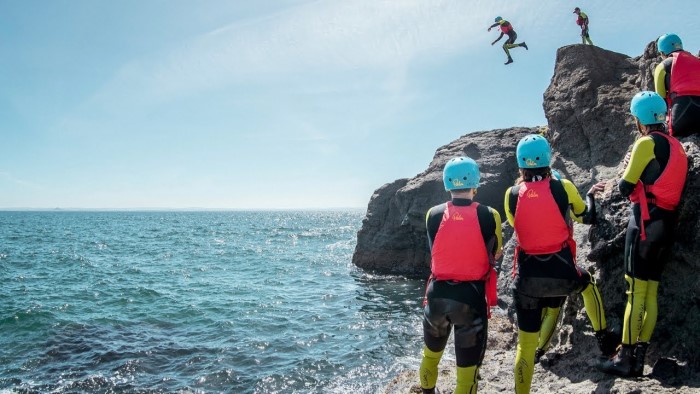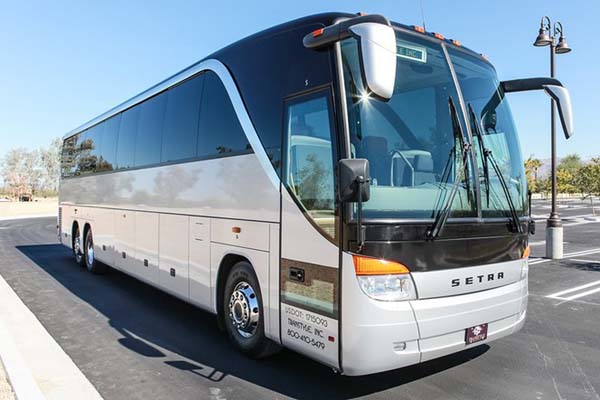Preparing for a hunt starts with the right gear, mindset, and strategy. Discover proven tips to make your hunting trip successful and enjoyable.
🦌 Why Preparing for a Hunt Matters
Have you ever rushed into something and realized you weren’t ready? Hunting works the same way. Walking into the woods without proper planning can ruin your trip fast. Success in hunting doesn’t just depend on skill—it’s about preparation. From knowing your gear to understanding your environment, preparation is what separates a successful hunt from wasted hours in the wild. If you want to enjoy the hunt and stay safe, preparation is everything.
When hunters prepare well, they increase their chances of spotting game, making accurate shots, and avoiding unnecessary risks. Good planning also keeps stress levels low. Imagine forgetting extra ammo or walking boots—it could ruin your entire day. That’s why a checklist, research, and practice all matter before stepping outside.
🎯 Setting Clear Hunting Goals
Before you even pack your bag, ask yourself: What do I want out of this hunt? Are you looking for big game like deer, or are you just spending time outdoors with friends? Each goal changes how you prepare.
- Big game hunting means heavier rifles, blinds, and maybe even scent control.
- Bird hunting requires lighter shotguns, faster movements, and camouflage.
- Survival-style hunting focuses more on self-reliance, traps, and bushcraft tools.
Clarity keeps you focused. Without it, you might carry the wrong gear or waste time in the wrong location. So, write down your hunting goals before you even start packing.
🧭 Researching the Hunting Area
Hunting without knowing your area is like driving without GPS—you’ll get lost and frustrated. Every region has unique landscapes, weather patterns, and game behavior. That’s why studying maps, online forums, and local regulations is a must.
- Use topographic maps to study terrain.
- Check weather forecasts for sudden changes.
- Ask local hunters for tips on animal movement.
- Review state hunting regulations so you don’t break the law.
Preparation here doesn’t just help you find animals—it also keeps you safe from dangerous zones, private land disputes, or natural hazards.
🧰 Building Your Hunting Gear Checklist
Nothing ruins a trip faster than realizing you forgot something essential. That’s why every hunter swears by a checklist. A well-prepared hunter is never caught off guard.
Essential hunting gear includes:
- Firearm or bow
- Ammunition or arrows
- Sharp hunting knife
- Binoculars
- Camouflage clothing
- Boots and socks
- Backpack
- First aid kit
- Flashlight or headlamp
Pro tip: Always double-check your gear the night before. Forgetting even a small item like a compass can cause big trouble outdoors.
Hunting Gear Essentials
| Item | Why It’s Important | Pro Tip |
| Firearm/Bow | Core hunting tool | Clean and test before use |
| Knife | Field dressing and survival | Keep blade sharp at all times |
| Boots | Comfort and safety on terrain | Break them in before hunting |
| Backpack | Carry all essentials | Choose lightweight but durable |
| First Aid Kit | Emergency preparedness | Check expiration dates yearly |
License
You need to know where and what you will be hunting. Many animals have specific seasons in which you can harvest them. There are also regulations on how many you can shoot and what type of weapon you use. Figure out what you want so you know the proper permits and licenses to purchase.
🥾 Choosing the Right Clothing
The clothes you wear can make or break your hunting trip. Hunting isn’t about looking stylish—it’s about blending in, staying warm, and moving quietly.
- Camouflage helps hide you from your prey.
- Layered clothing keeps you warm in cold mornings and cool by afternoon.
- Moisture-wicking fabric prevents sweat from chilling your body.
- Waterproof jackets save you when rain hits unexpectedly.
Camouflage
To get close enough to an animal to shoot it, you need to be able to disguise yourself. That’s why it’s important to have a good set of camouflage clothing and boots. Animals will be able to tell when things are out of place, so you want to blend in with the environment. You’ll find that they use sight, smell, and hearing as they go throughout the woods. You’ll need to maneuver all the tactics in order to be a successful hunter.
Remember, animals have sharp senses. If you’re too loud, too bright, or smell too strong, you’ll scare them away before you even see them.
🔫 Selecting the Right Weapon
Every hunter knows the weapon makes a big difference. The right tool depends on what you’re hunting and how you plan to do it.
- Rifles offer power and long-range accuracy.
- Shotguns are great for birds and fast-moving targets.
- Bows bring challenge and stealth into the hunt.
Always practice before the actual hunt. Fumbling with your weapon at the wrong moment can cost you the shot.
You’ll also need to have a good firearm or bow to hunt with. You may need multiple ones, as different game animals will require different weapons. You’ll find that birds are better to hunt with a shotgun, while larger animals such as deer are better to hunt with a rifle or muzzleloader. It’s also good to have some hunting knives Toronto with you when you’re out as well. Field dressing the animals is an important part of the harvest.
🍎 Packing Food and Water
Hunting can take hours—or even days. Without food and water, your body won’t perform well. Dehydration alone can lead to fatigue, poor focus, and bad decision-making.
- Carry at least 2 liters of water per day.
- Bring high-protein snacks like jerky or nuts.
- Pack lightweight meals that don’t spoil easily.
Think of food as fuel. The right nutrition helps you stay alert and ready for when the perfect shot presents itself.
Easy Hunting Food Options
| Food Type | Benefits | Portability Score (1–5) |
| Jerky | High protein, long shelf life | 5 |
| Trail Mix | Energy from nuts & fruit | 5 |
| Energy Bars | Compact and filling | 4 |
| Canned Tuna | Protein-packed, easy meal | 3 |
| Instant Oatmeal | Warm breakfast option | 4 |
🛠 Practicing Before the Hunt
Practice doesn’t just make perfect—it makes you prepared. Many beginners assume they’ll “figure it out” in the wild. But when the moment comes, nerves and inexperience kick in.
- Visit a shooting range.
- Practice aiming from different positions.
- Learn to reload quickly and quietly.
- Try dry firing for muscle memory.
This preparation means when the real moment arrives, your actions feel natural, not clumsy.
🌲 Understanding Animal Behavior
Animals have patterns, instincts, and habits. If you want a better chance of success, you need to study them.
- Deer move most during dawn and dusk.
- Birds often travel in groups and follow feeding patterns.
- Predators may be drawn to certain sounds or scents.
Knowing these behaviors helps you predict movements and position yourself for success.
🦺 Staying Safe While Hunting
Hunting is exciting, but safety always comes first. One small mistake can turn dangerous quickly.
- Always let someone know your hunting location.
- Carry a fully stocked first aid kit.
- Wear orange gear during firearm season for visibility.
- Treat every weapon as if it’s loaded.
Safety is not about fear—it’s about responsibility. A safe hunter is a respected hunter.
Hunting Safety Basics
| Safety Practice | Why It Matters | Extra Tip |
| Wear Orange Clothing | Increases visibility to hunters | Keep it bright and visible |
| First Aid Kit | Quick response to injuries | Learn basic first aid skills |
| Check Firearm Safety | Prevents accidental discharge | Never point at anything live |
| Inform a Friend | Emergency backup plan | Share your GPS location |
| Know Local Laws | Stay legal and safe | Carry a printed copy |
🌦 Preparing for Weather Changes
Weather can change faster than you think. A sunny morning can turn into a stormy afternoon. Smart hunters prepare for anything.
- Pack a waterproof poncho.
- Bring extra socks and gloves.
- Carry fire-starting tools.
- Know how to build a quick shelter.
Preparedness keeps you comfortable and safe no matter what Mother Nature throws your way.
📦 Packing Light but Smart
Carrying too much gear can slow you down. On the flip side, packing too light leaves you unprepared. Balance is key.
- Stick to multipurpose tools.
- Use lightweight food options.
- Organize gear so it’s easy to access.
Remember, you’ll likely hike long distances. A heavy bag makes you tired faster and reduces focus when you need it most.
🔔 Using Hunting Technology
Modern hunters have tools that older generations never dreamed of. From GPS trackers to trail cameras, technology can give you an edge.
- GPS devices prevent you from getting lost.
- Rangefinders improve shot accuracy.
- Trail cameras help study game movement before you hunt.
But here’s a key point: don’t rely only on tech. Batteries die, signals fail. Old-school skills are still essential.
🗣 Learning to Stay Quiet
Noise is a hunter’s worst enemy. One snap of a branch and your prey is gone.
- Step slowly and carefully.
- Avoid unnecessary talking.
- Secure your gear so it doesn’t rattle.
Sometimes the best hunters aren’t the fastest—they’re the quietest.
🛏 Resting Well Before the Hunt
Many hunters overlook this, but rest matters. Lack of sleep can affect your focus, reaction time, and decision-making.
- Sleep at least 7–8 hours before the hunt.
- Avoid heavy drinking the night before.
- Prepare your gear in advance so you’re not up late packing.
Well-rested hunters are sharper, quicker, and more successful.
🏆 Conclusion: Key Takeaways for Preparing for a Hunt
Preparation is the real secret behind every great hunting story. When you set goals, study your area, pack smart, and stay safe, the hunt becomes enjoyable instead of stressful. From gear checklists to animal behavior and safety practices, preparation makes all the difference.
Hunting isn’t just about the kill—it’s about respect for nature, responsibility, and the adventure itself. So, before you step outside, prepare wisely. That way, your hunting trip becomes a memory worth keeping, not a regret you wish you avoided.
❓ FAQs
How do I prepare for a hunting trip?
Start by researching your area, setting hunting goals, and creating a gear checklist. Always practice with your weapon and pack essentials. Preparation reduces risks and boosts success.
What food should I pack for hunting trips?
Pack lightweight, high-protein foods like jerky, nuts, and trail mix. Bring enough water to stay hydrated. Choose foods that won’t spoil quickly.
What clothing is best for hunting season?
Wear camouflage, moisture-wicking layers, and waterproof outerwear. Choose boots that are comfortable and broken in. Dressing properly keeps you safe and hidden.
How can I stay safe while hunting?
Always inform someone of your location, wear orange gear, and carry a first aid kit. Follow weapon safety rules. Safety keeps hunting enjoyable.
What gear is essential for new hunters?
A weapon, ammunition, knife, boots, backpack, and first aid kit are must-haves. Binoculars and a flashlight help too. Always double-check your gear before leaving.
Hunting is a fun outdoor activity to do. It’s a great way to help manage wildlife, while also getting food for your family. You can find yourself seeing things you would have never dreamed of when you are out in the woods. A lot of animals tend to like seclusion and stay away from people. This is another reason people like to hunt since it lets them escape the craziness of this world. Here are a few things that will help you get started on your next hunt.
Hunting can be challenging, but it’s well worth the time and effort when you get something. Over time you’ll learn how to be better and discover things that will help you succeed.







Leave a Reply